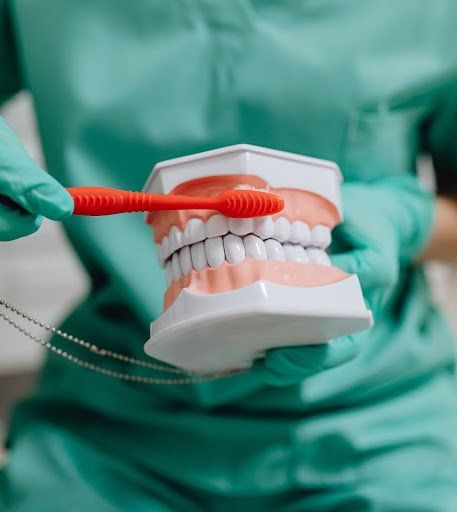The Relationship Between Your Sinuses and Your Teeth
- by Milena Marguenski
- •
- 30 Jan, 2025
- •

Understanding The Relationship Between Your Sinuses and Your Teeth is crucial for maintaining optimal oral health. Many people often associate a toothache with cavities or gum issues, yet the connection between sinuses and oral health reveals a different story. Maxillary sinuses, located near your upper teeth roots, can be a source of discomfort, leading to sinus-related tooth pain.
Why is this important? Recognizing sinus-related tooth pain can prevent unnecessary dental treatments and lead you to the right solution. Misunderstanding this relationship often leads to common misconceptions about toothaches, where individuals mistakenly attribute their pain solely to dental issues.
- Sinus-related tooth pain: Often mistaken for regular toothache.
- Common misconceptions: Toothaches are always due to cavities or decay.
This knowledge empowers you to seek proper diagnosis and treatment, ensuring both your dental and sinus health are well managed. However, it's also essential to be aware of other potential dental issues such as tooth discoloration which could arise from different causes unrelated to sinus problems. Furthermore, understanding popular trends in cosmetic dentistry might also be beneficial in managing your overall dental health.
Understanding Sinuses and Their Function
Anatomy of the Sinuses
- Maxillary Sinuses: These are the largest and are situated behind your cheeks. The close relationship between the roots of your upper teeth and the maxillary sinuses means any inflammation or infection here can lead to discomfort that might be mistaken for dental pain.
- Other Sinus Cavities: While the maxillary sinuses are most relevant to toothaches, it's important to note that there are additional sinus cavities — frontal, ethmoid, and sphenoid — which contribute to overall nasal function and health.
Role in Health
The maxillary sinuses serve several functions:
- Humidifying and Filtering Air: They help moisten inhaled air and trap dust particles.
- Resonating Chamber for Voice: They contribute to the quality of your speech.
- Protection Against Pathogens: By producing mucus, they help protect against infections.
Sinus infections, often triggered by colds or allergies, can lead to symptoms that resemble dental issues. Common sinus infection symptoms include facial pain, pressure around the cheeks, and a runny nose. Recognizing these signs is vital for distinguishing between sinus-related issues and genuine dental problems.
Understanding this anatomy and function helps in identifying when sinus troubles might actually be at play in what you perceive as a toothache. For instance, if you're experiencing discomfort due to a sinus infection, it's essential to maintain good oral hygiene during this period. This includes regular flossing which is important for preventing further dental issues.
Moreover, if you're dealing with discoloration of your teeth as a result of certain medications taken for sinus infections or allergies, there are ways to address this. You might consider some home remedies for teeth whitening which can provide whiter and brighter teeth.
The Connection Between Sinus Health and Oral Health
How Sinus Issues Can Cause Tooth Pain
Sinus-related toothache usually happens when the maxillary sinuses become inflamed or infected. As these sinuses swell, they put pressure on the roots of the upper teeth. This pressure can create discomfort that feels similar to a dental problem.
Symptoms of Sinus-Related Toothache Include:
- Pain in multiple upper teeth: Unlike most dental issues that affect one tooth, sinus-related pain often spreads across several teeth.
- Increased pain when bending over or lying down: Changes in head position can make sinus pressure worse.
- Accompanying sinus symptoms: Facial pressure, nasal congestion, or a runny nose often go hand in hand with this type of toothache.
Identifying When to Seek Medical Evaluation
It's important to know whether your toothache is caused by a sinus problem or an actual dental issue so you can get the right treatment. Here's how you can tell:
- Seek a Dental Professional If:The pain is localized to one tooth and persists without any nasal symptoms.
- There are signs of decay or visible damage to a specific tooth.
In such cases, understanding the safety of dental X-rays can also be helpful for diagnosis.
Consult an ENT Specialist If: You experience widespread pain in several teeth alongside consistent nasal symptoms.
The discomfort worsens with head movements or is accompanied by facial swelling.
Knowing these symptoms and when to seek appropriate medical evaluation can save you from unnecessary treatments and effectively address the root cause, ensuring both your oral health and sinuses are well taken care of.
Additional Resources for Oral Health
Causes of Tooth Pain Beyond Cavities
Common Causes of Non-Cavity Related Tooth Pain
Here are some common reasons why you might be experiencing tooth pain that isn't caused by cavities:
- Gum Disease: Infections such as gingivitis and periodontitis can cause gums to swell, bleed, and recede, resulting in pain that feels like it originates from the teeth.
- Tooth Fractures: Even a minor crack in a tooth can lead to significant pain, especially when biting or exposed to temperature changes.
- Sinus Infections: The maxillary sinuses are situated close to the roots of your upper teeth. When these sinuses become infected or inflamed, they can exert pressure on nearby nerves, leading to what feels like a toothache.
- Bruxism (Teeth Grinding): Chronic grinding or clenching of teeth can wear down enamel and cause jaw pain that mimics dental issues.
- Abscesses: An abscessed tooth occurs when an infection reaches the root or the surrounding gum tissue, causing severe pain and swelling.
Recognizing these potential causes is crucial. Persistent symptoms should prompt a consultation with healthcare professionals who can guide you towards relief. The Relationship Between Your Sinuses and Your Teeth plays a significant role when considering sinus-related toothaches alongside other non-cavity sources.
Diagnosing Sinus-Related Tooth Pain
Understanding the connection between sinuses and tooth pain is critical for accurate diagnosis and relief. At the forefront of this process are endodontists, specialists in diagnosing tooth pain sources. They utilize several diagnostic methods to pinpoint whether the discomfort is sinus-related or stems from dental issues.
Key Diagnostic Methods:
- Comprehensive Examination: A thorough examination by an endodontist includes a detailed review of your symptoms. Identifying characteristic signs like facial pain, headaches, or nasal congestion alongside tooth pain can suggest sinus involvement.
- X-rays: This imaging technique is pivotal in differentiating dental problems from sinus-related issues. X-rays allow visualization of both teeth and the adjacent sinus areas, helping to identify any swelling or infection in the sinuses that could be impacting dental health.
- CT Scans: For more complex cases, CT scans provide three-dimensional images offering a more detailed view of the relationship between your sinuses and teeth.
These diagnostic tools help in crafting an effective treatment plan, ensuring that both sinus and dental causes are addressed appropriately. Recognizing these signs early and seeking expert evaluation can prevent complications and promote better oral health.
Treatment Options for Sinus-Related Toothaches
Common Treatments for Sinus Infections
- Antibiotics: Often prescribed to combat bacterial sinus infections. They help reduce inflammation and alleviate pressure on the nerves linked to your teeth.
- Nasal Decongestants: These can aid in draining mucus and relieving sinus pressure, providing temporary relief.
- Saline Nasal Sprays: Useful for keeping nasal passages moist, they can support natural drainage.
- Hydration and Rest: Staying hydrated and getting plenty of rest are essential for supporting the body's immune response.
Dental Treatments for Infected or Decayed Teeth
When a dental issue is identified as the cause of tooth pain:
- Fillings: Used to treat cavities by removing decayed material and filling the space with a dental material.
- Root Canals: Recommended when decay reaches the tooth's pulp. This procedure involves removing infected tissue to prevent further damage.
In certain cases, when decay is extensive or a tooth is severely infected:
- Tooth Extraction: Sometimes necessary to prevent infection from spreading to adjacent teeth or sinuses. Though it might seem drastic, extraction can be vital for long-term oral health.
It's also important to note that some treatments, such as teeth whitening, can be affected by underlying dental issues. Therefore, it's essential to address any existing problems before pursuing cosmetic procedures.
Additionally, if you're experiencing symptoms like swelling or persistent pain in your gums, these could be signs of gum disease. In such cases, consulting with a dental professional promptly can help identify the issue and initiate appropriate treatment.
Addressing both potential causes ensures comprehensive relief from sinus-related tooth pain. Consulting with both dental professionals and ENT specialists can guide you toward appropriate treatment paths tailored to your specific needs.
Preventative Measures
Oral Hygiene Tips:
- Brush Twice Daily: Use a soft-bristled toothbrush and fluoride toothpaste to clean your teeth effectively.
- Floss Regularly: Flossing removes plaque and food particles between teeth where a toothbrush can't reach.
- Use Antimicrobial Mouthwash: Helps reduce bacteria that cause gum disease and bad breath.
- Avoid Common Oral Hygiene Mistakes: Here are some common mistakes you should avoid to maintain optimal oral health.
Lifestyle Changes for Sinus and Dental Health:
- Stay Hydrated: Drinking plenty of water keeps the mucous membranes moist, supporting sinus health.
- Avoid Smoking: Smoking can irritate the sinuses and gums, leading to inflammation.
- Balanced Diet: Consume a diet rich in vitamins C and D to strengthen your immune system, impacting both oral and sinus health positively.
Understanding the relationship between your sinuses and your teeth can lead to better preventative care, ensuring optimal health for both areas.
Conclusion
Understanding the relationship between sinuses and teeth is crucial for maintaining optimal health. Many individuals mistakenly attribute persistent tooth pain solely to dental issues, overlooking the potential influence of sinus problems. Recognizing symptoms that could indicate sinus involvement—such as facial pressure, headaches, and nasal congestion—can guide you towards seeking the right professional assistance.
Persistent discomfort demands attention. Consulting with healthcare professionals ensures accurate diagnosis and effective treatment, whether your symptoms stem from dental or sinus origins. Ignoring these signs could lead to complications, underscoring the importance of timely medical intervention.
A proactive approach to your health can prevent minor issues from escalating into serious conditions. Trust in expert advice and seek help when experiencing unexplained or ongoing symptoms affecting both your sinuses and teeth. Prioritizing professional evaluation is a step towards achieving relief and maintaining overall well-being.
FAQs (Frequently Asked Questions)
What is the connection between sinuses and tooth pain?
What are common symptoms of sinus-related toothaches?
How can I differentiate between a dental issue and sinus-related pain?
What are some causes of tooth pain beyond cavities?
What treatments are available for sinus-related toothaches?
How can I maintain good oral hygiene to prevent complications from sinuses and teeth?


Brooklyn residents often wonder whether their tap water is helping or harming their dental health. One key factor in this debate is
fluoride
, a naturally occurring mineral added to public water supplies to prevent cavities. But does Brooklyn tap water really protect your teeth from decay? In this blog,
we’ll
uncover the truth about fluoride levels in NYC’s water and whether it plays a significant role in cavity prevention.

Sudden gum swelling is a dental condition that requires immediate attention, even if there is no pain. Gum health is often overlooked, but it is essential for overall oral well- being. Swollen gums may seem harmless at first, but they often indicate underlying issues that can worsen if left untreated.
Many people think of dental emergencies as situations with severe pain, but it's important to understand that discomfort isn't always a reliable sign of serious problems. Just because there is no pain doesn't mean there is no risk. Sudden gum swelling should be treated as an emergency , emphasizing the need for prompt professional evaluation.
Ignoring swollen gums can lead to more severe complications, affecting both oral health and general wellness. By understanding the seriousness of this condition and
seeking timely intervention, you can prevent further damage and ensure that your gums—and teeth—stay healthy and strong.
A skilled dental team can properly assess and treat any swelling. Prioritize your gum health by taking action when you notice unusual changes, protecting your smile for the future.
It's important to remember that maintaining good oral hygiene, including flossing your teeth regularly , can help prevent conditions like gum swelling. Additionally, if you're interested in improving your smile beyond just addressing gum issues, there are various options available in cosmetic dentistry that you should know about. Finally, if you're looking for ways to achieve a brighter smile, there are effective methods on how to get whiter and brighter teeth at home that you might find helpful.

If you thought that oral health problems are only for adults, then think again. The first teeth start appearing by 4 to 5 months of age. Then by the age of 3, kids have a full set of teeth. This is the time when parents have to be extremely careful about oral hygiene.
By the age of 6-7, the primary teeth start to fall out to make space for the permanent teeth. These permanent teeth are the ones that will stay with them for the rest of their lives. However, there are certain oral problems such as tooth decay, lip sucking, and early teeth loss.
Let’s take a look at these common oral health problems.

With the procedures’ popularity, several pharmaceutical companies launched their over-the-counter teeth whitening kits. This made the procedure more accessible and cheaper as compared to a professional session.
But which one is better? Let’s understand both the procedures first.

However, if the damage is left untreated, it can lead to irreversible damage. According to the CDC , about 42.7% people by the age of 30 years face some sort of periodontal disease. These diseases increase with age.
Let’s take a further look into the type of disease and how they can be treated.




